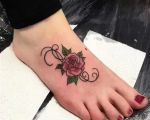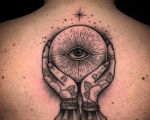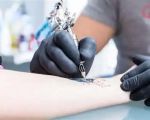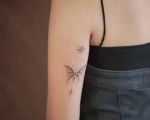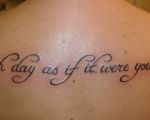Can You Sell Artwork to Tattoo Shops? A Comprehensive Guide for Artists
As an artist, one of the most exciting opportunities for exposure is selling your artwork to tattoo shops. But how do you get your art into the hands of tattoo artists who are always looking for fresh designs? Can you really sell your artwork to tattoo shops, and if so, what steps do you need to take to make it happen? As someone who's navigated the world of tattoo art sales, I can tell you it's not just about creating great art – it’s about building relationships and understanding the unique needs of tattoo artists.
1. Why Tattoo Shops Buy Artwork
Tattoo shops are always looking for new artwork to inspire their clients. Tattoo artists are constantly in search of fresh ideas and designs that reflect their clients' personal styles and interests. While many tattoo artists have their own design portfolios, they often seek outside artwork to complement their work, or they may not have the time to create custom designs for every client.
Artwork that is unique, detailed, and resonates with a variety of potential clients tends to be in high demand. Tattoo shops often want designs that can be adapted into tattoos easily, which is why your artwork should be flexible and capable of being translated into a tattooable form. Offering artwork that can be modified to suit different tattoo styles or that already looks tattoo-ready can greatly increase your chances of selling it to a tattoo shop.
2. How to Sell Your Artwork to Tattoo Shops
Now that you understand why tattoo shops are interested in buying artwork, let’s dive into the practical steps to get your designs noticed and purchased by tattoo studios. The process can be straightforward, but it requires patience, persistence, and a well-executed strategy.
2.1 Research Tattoo Shops and Their Styles
Before approaching tattoo shops, it’s essential to research the studios you want to target. Each tattoo shop has its own unique style, from traditional tattoos to more modern or abstract designs. It’s important to tailor your artwork to match the aesthetic of the tattoo shops you’re interested in. Look at the tattoo artists’ portfolios to see what types of artwork they are currently using, and try to create pieces that fit within that range while adding your unique flair.
2.2 Build a Portfolio
To effectively sell artwork to tattoo shops, you need a professional portfolio that showcases your best designs. A well-organized portfolio will help you make a strong impression on tattoo artists and shop owners. The portfolio should include high-quality images of your artwork, along with any relevant details such as your process, medium, and any customization options you offer. If you can show how your artwork would look as a tattoo, that's even better. Tattoo artists appreciate knowing how a piece will translate onto skin.
2.3 Reach Out to Tattoo Shops
Once you have a solid portfolio, it’s time to start reaching out to tattoo shops. This step can feel intimidating, but remember that tattoo artists and shop owners are often looking for new designs, so don’t be afraid to send your portfolio. You can contact shops through email or social media, but it’s best to be professional and personalized in your outreach. Mention why you think your artwork would be a good fit for their shop and provide a link to your portfolio or attach samples of your work. Don’t forget to follow up if you don’t hear back, but always be polite and professional.
3. Types of Artwork Tattoo Shops Are Looking For
Not all artwork is suitable for tattoo shops. Tattoo shops typically look for designs that are easy to translate onto skin and can be customized to fit different clients. Here are some types of artwork that are most in demand:
3.1 Traditional and Flash Designs
Traditional tattoos, with their bold lines and classic motifs, are always in demand. Flash designs, which are pre-drawn designs that tattoo artists can quickly reference for clients, are also popular. These designs often include imagery like skulls, roses, eagles, and other timeless symbols that have broad appeal. If you specialize in this type of artwork, tattoo shops may be particularly interested in your portfolio.
3.2 Custom Artwork
Custom artwork that reflects the client’s personal style is always in demand. Tattoo shops often ask for artists who can create original designs based on a client’s idea or story. If your artwork is customizable and easily adaptable, it has a better chance of being picked up by a tattoo shop. Offering designs that can be modified with different colors or elements gives tattoo artists more flexibility in their work.
3.3 Contemporary and Abstract Designs
Modern tattoos often feature contemporary designs, including abstract art, geometric shapes, and intricate linework. These tattoos are more versatile and appeal to a younger, trend-conscious crowd. If your artwork fits this category, consider tailoring your pieces to match modern tattoo trends. Being able to create artwork that reflects contemporary tattoo styles is a great way to increase your chances of selling to tattoo shops.
4. Building a Relationship with Tattoo Shops
Once you've started selling your artwork to tattoo shops, building lasting relationships with the owners and tattoo artists is key. Successful artists often have long-term relationships with tattoo shops, where their artwork is regularly used and displayed. Building trust and communication with tattoo artists allows you to receive feedback and refine your designs over time, ensuring they continue to meet the needs of the tattoo community.
5. How to Price Your Artwork for Tattoo Shops
Pricing your artwork appropriately is an important aspect of selling to tattoo shops. You want to ensure that your prices are competitive, but also reflect the value of your work. Tattoo shops typically buy artwork in bulk or on a per-design basis, so consider offering discounts for multiple purchases or licensing your designs for repeated use. Research other artists in the field to see how they price their work and ensure that your pricing aligns with industry standards.
6. Growing Your Reputation in the Tattoo Industry
As you gain experience selling artwork to tattoo shops, your reputation within the tattoo industry will grow. The more artists and shops use your designs, the more recognition you will receive. This can lead to more opportunities to work with top-tier shops and clients. As your portfolio expands and your artwork becomes more popular, you may even have the chance to collaborate with tattoo artists on custom projects or become known as a go-to designer for specific tattoo styles.

